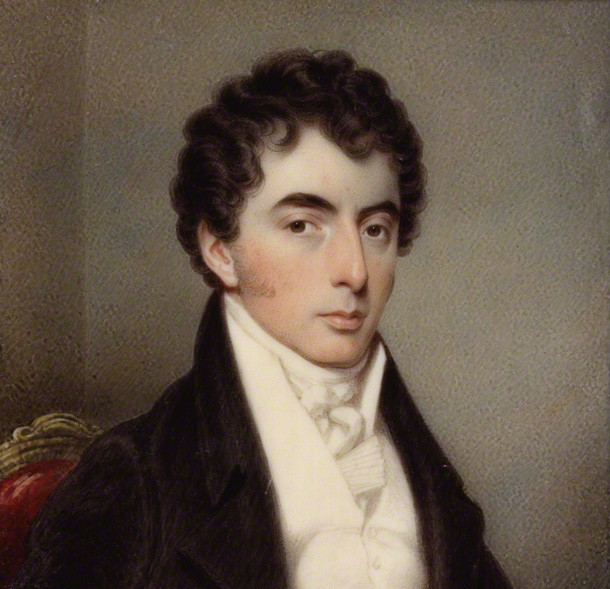Nature, the gentlest mother, is a poem written by Emily Dickinson. Unlike her other nature-centric poems, we see that she has given a motherly persona to Nature, bringing out a positive tone in the poetry. Emily Dickinson lived a life of recluse away from people but enjoyed and dwelled in Nature immensely. We see this influence throughout her poetical life. In this poem, the character is portrayed as the mother of all beings and creatures who care for everyone regardless of their shortcomings.
Nature, the Gentlest Mother Summary
NATURE, the gentlest mother,
Impatient of no child,
The feeblest or the waywardest—
Her admonition mild
Nature is calm and patient with her children. She is patient with the feeble and the strangest of them all. She does not discriminate among her children. Even her tone of admonition or scolding is mild. Nature is portrayed as a caring mother devoted to her children and loves every single being that belongs to her without any discrimination. Using the mother figure, Natureture is the personification of the motherly charactersNatureture itself.
In forest and the hill
By traveler be heard,
Restraining rampant squirrel
Or too impetuous bird.
The second stanza brings out the motherly instinctNatureture, where she restrains her children amidst humans. Nature is present everywhere in the forests and well the hills. The traveller hears they denote humans in general. Humans are aNature’sre’s children, but humans tend to destroy more tNatureture. Therefore we see that mother nature is hushing down and restraining the rampant squirrel and the erratic bird so that humans do not harm them or be enticed by them. Another notion that might be depicted is that travellers are found to explore only the hills and the forests, and they are clearly able to witnNatureture in all its glory. Therefore, Mother Nature has to ensure that humans do not do something that negatively impacts her children in the name of invention and exploration. The animals are said to have stopped making noise once the humans approached.
How fair her conversation
A summer afternoon,
Her household her assembly;
And when the sun goes down,
In the 3rd stanza, the focus is backNatureture, where Emily praises the workingsNatureture and all her aspects. Nature survives through every season and change. The words household and assembly hold strong points because Nature is personified as a mother. Therefore like a mother’s household, Nature looks after her assembly of children and household of greenery. The last line of the stanza continues to the next part, shifting the setting to the end of the day as the sun goes down.
Her voice among the aisles
Incite the timid prayer
Of the minutest cricket,
The most unworthy flower.
Nature prays and acknowledges the voices of the smallest of creatures inciting the prayer, regardless of how unworthy the creature might seem. It describes Nature’s voice flowing between aisles. Aisles are normally in a church, which makes this mother seem like she is faithful to God. Nature’s voice is described as praying. She is praying for her children, which are listed below, to what humans usually think of as inferior. One of which is an “unworthy flower.” Flowers that are wilted or ugly are seen as even more inferior since this plant is perceived as the most beautiful of all creations. Dickinson stresses the ugly, unworthy flower to express the unconditional love of mother nature.
When all the children sleep,
She turns as long away
As will suffice to light her lamps,
Then bending from the sky
The first line describes the night when all her children are asleep. Her children include all the beings of the world. Even when her children are asleep, she has other duties that she needs to take care of. Therefore we see in the next three lines that tNatureture is going a long way to light her lamps for the next day. “Bending from the sky” indicates the setting of the sun. Since the sun is setting, she will have to go a long way to get the light back for the next day. This stanza picturizes the scene of a day ending Natureture waiting for the next day to start.
With infinite affection
Infinite care,
Her golden finger on her lip,
Wills silence everywhere.
The last stanza of the poem brings us to the end of the night, where this is a sense of calm before the day begins again and the cycle continues. With all her affection and boundless caNatureture is seen to hush down her children with a finger on her lip and brings silence everywhere. The golden finger indicates the ideal mother who has the golden touch of calming her children instantly.
Nature, the Gentlest Mother Analysis
The poem NATURE, the gentlest mother, is a poem that brings out the human elements of motherhood with Nature’sre’s sphere. For agNatureture has always been denoted with the stature of a mother. Emily Dickinson tries to bring Natureture as the ideal mother who loves and takes care of her children without any sense of bias or discrimination. Throughout her poems, we see that all the nature-centric words have their first letter capitalized.
In this poem, we see that she begins the poem with the word “NATURE” in bold capital letters, stressing the poem’s message and essence. Through the first line itself, she declaNatureture as the gentlest mother. A world and its beings are seenNature’sre’s children. She loves and takes care of her children regardless of their stature or growth in the world. She is unbiased and loves every child equally and unconditionally. She represents the ideal mother who loves her children unconditionally and prays for their wellbeing.
There is a sense of comparison betwNatureture and humans. WhNatureture is unbiased and non-discriminatory; humans are considered destructive and selfish. We see in the second stanza that Emily shNatureture cautioning and restraining her children as travellers pass by the hills and forests. Though humans are aNature’sre’s children, Mother Nature perceives humans as an entity that might threaten her other children.
Nature, the Gentlest Mother Theme
The poem is reflective and respectful. Throughout the poem, there is a sense of praise and gratitude towards Nature and its functioning. Emily has put Nature on a pedestal by giving it the title of motherhood. The poem is reflective of Emily’s perception of Nature and its place in her life. The running theme throughout the poem is Motherhood. The instincts of love, care, protection, and unbiased compassion of motherhood are reflected beautifully in Nature through this poem.
The poem is a symbolism Nature as an ideal mother and questions human behaviour with a lying undertone.
Updated by Anjali Roongta on 18th April 2023
Some online learning platforms provide certifications, while others are designed to simply grow your skills in your personal and professional life. Including Masterclass and Coursera, here are our recommendations for the best online learning platforms you can sign up for today.
The 7 Best Online Learning Platforms of 2022
- Best Overall: Coursera
- Best for Niche Topics: Udemy
- Best for Creative Fields: Skillshare
- Best for Celebrity Lessons: MasterClass
- Best for STEM: EdX
- Best for Career Building: Udacity
- Best for Data Learning: Pluralsight















